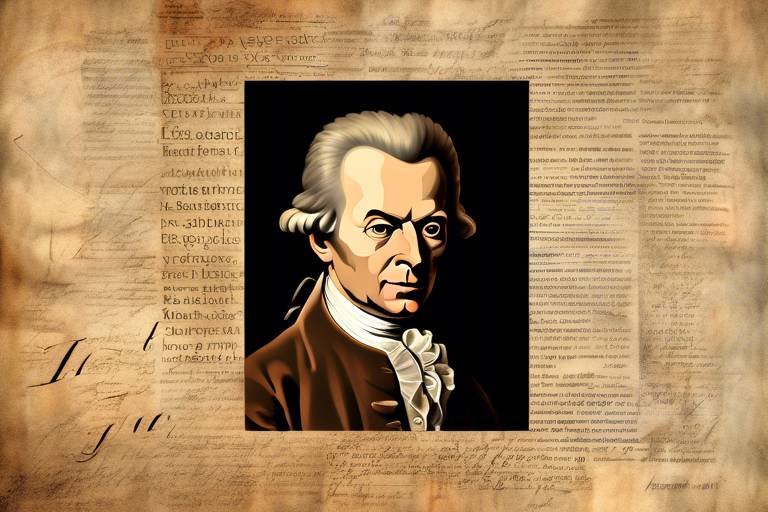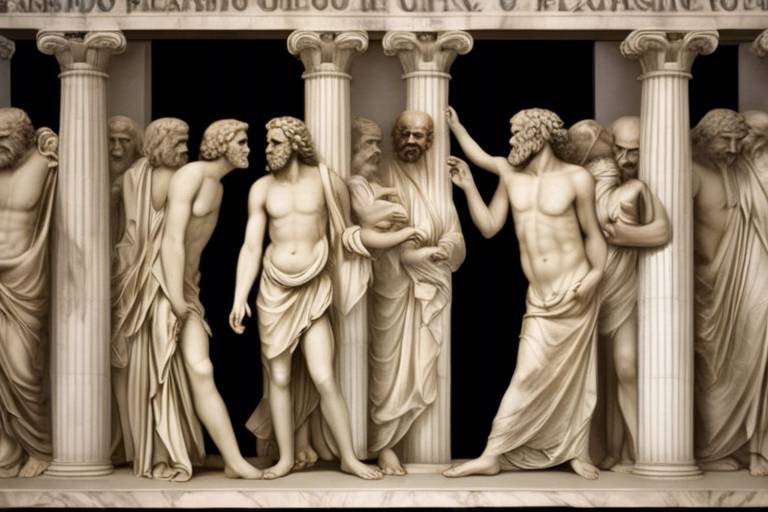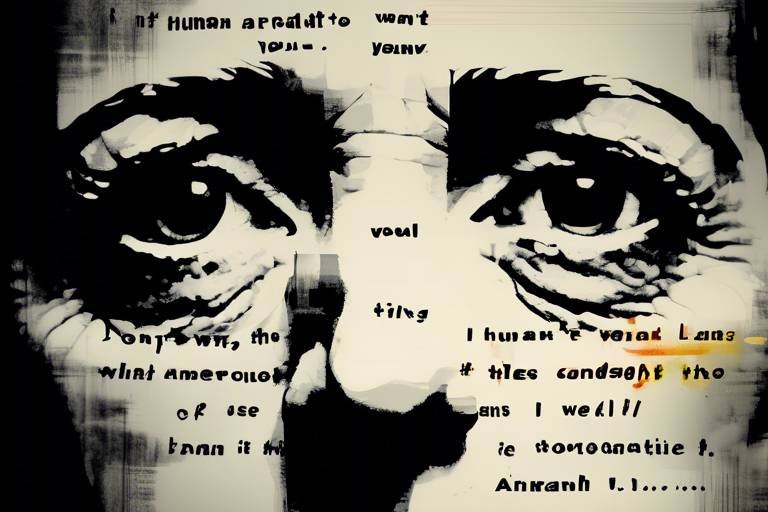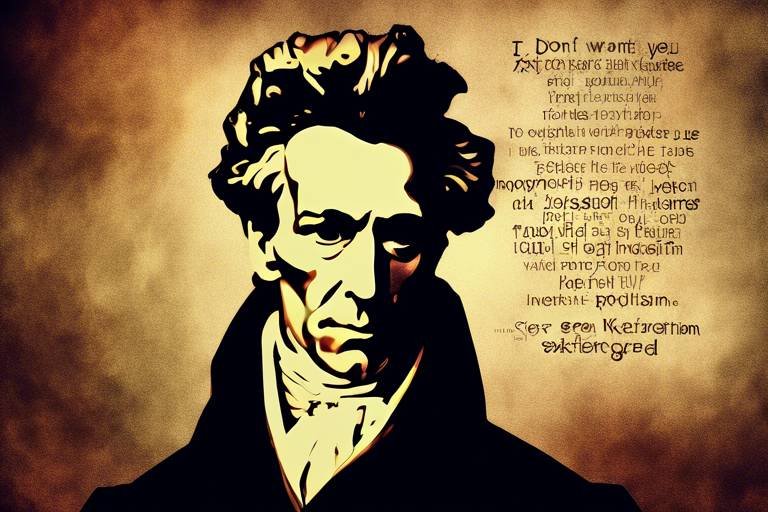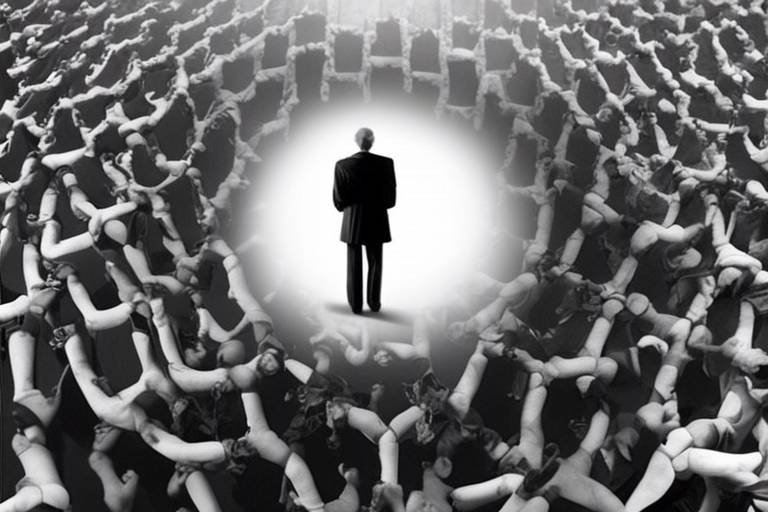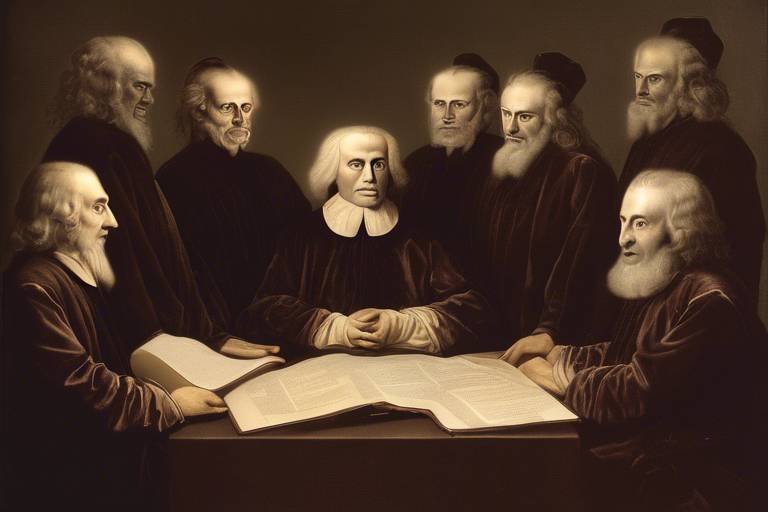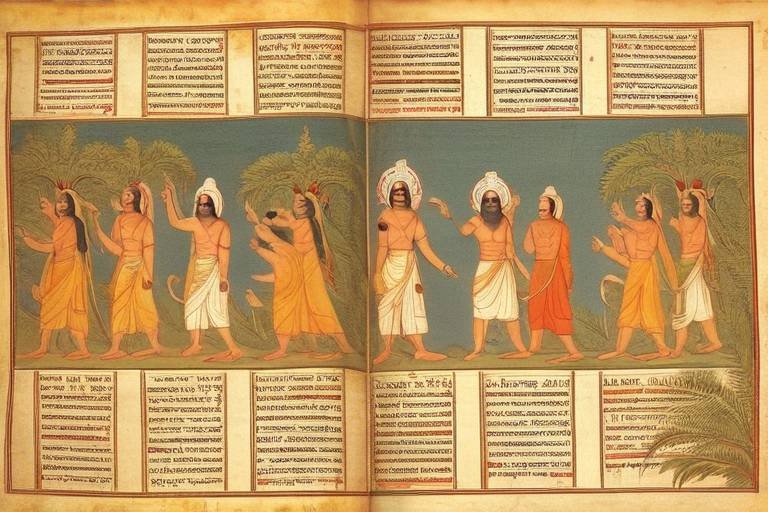How Did Mao Zedong's Philosophy Shape Modern China?
Mao Zedong's philosophy, a blend of Marxism-Leninism and Chinese characteristics, has left an indelible mark on modern China. His ideology not only shaped the political landscape but also influenced the very fabric of Chinese society and culture. To understand how Mao's thoughts continue to resonate today, we must delve into the historical context of his rise, the core principles of his philosophy, and the lasting effects these have had on contemporary governance and social norms.
In the early 20th century, China was a nation in turmoil. The Qing Dynasty had collapsed, and the country was plagued by warlordism, foreign invasions, and social unrest. Amidst this chaos, Mao Zedong emerged as a revolutionary leader who sought to unify the country under a communist framework. His philosophy was born out of a necessity to address the dire socio-political conditions of the time. The struggle against imperialism and feudalism became the cornerstone of Mao's ideology, paving the way for the Communist Party's rise to power in 1949.
Mao Zedong's philosophy is characterized by several core principles that have significantly shaped the strategies and policies of the Chinese Communist Party. These principles include:
- Continuous Revolution: Mao believed that the revolution must be an ongoing process to prevent the resurgence of capitalist elements.
- Class Struggle: This principle emphasized the conflict between different social classes as a driving force for change.
- Self-Reliance: Mao advocated for economic independence, focusing on agricultural collectivization and industrialization.
The concept of continuous revolution is a foundational aspect of Mao's ideology. He argued that the struggle against class enemies should never cease, as it was essential to safeguard the gains of the revolution. This belief had profound implications for China's political landscape after 1949, influencing policies and practices that prioritized ideological purity over pragmatic governance.
Mao's idea of continuous revolution reached its zenith during the Cultural Revolution (1966-1976), a tumultuous decade marked by social upheaval and political purges. The campaign aimed to eliminate perceived threats to communist ideology and reinforce Mao's authority. Millions were mobilized to criticize and attack those deemed counter-revolutionary, leading to widespread chaos and suffering.
The emphasis on class struggle during Mao's era fostered a culture of suspicion and political purges. This legacy is complex, as it ingrained a sense of vigilance against perceived threats within the party and society. Even today, the echoes of this tumultuous period can be felt in China's political discourse, where loyalty to the party remains paramount.
Mao's principle of self-reliance guided China's economic policies, emphasizing the need for the nation to develop independently. This led to the collectivization of agriculture, where small farms were merged into large collective farms, and a push for rapid industrialization. Although these policies aimed to transform China into a self-sufficient socialist state, they also resulted in significant economic challenges, including famine and inefficiencies that the country struggled to overcome.
Even decades after Mao's death, his philosophy continues to influence contemporary Chinese politics. The Communist Party of China still draws on Maoist principles to legitimize its governance, navigating the delicate balance between maintaining ideological purity and adapting to global economic pressures. This duality is evident in the party's policies, which often reflect a blend of Maoist thought and market-oriented reforms.
The Communist Party utilizes Maoist principles to reinforce its authority and justify its policies. For instance, the party often invokes Mao's legacy during national celebrations and in educational curricula, ensuring that the revolutionary spirit remains alive in the collective consciousness of the Chinese people.
Mao's philosophy has also contributed significantly to the development of a unique Chinese national identity. By intertwining nationalism with communist ideology, the party has created a narrative that emphasizes unity and strength, positioning itself as the protector of the nation against external threats. This narrative remains a cornerstone of the party's messaging today.
The societal impact of Mao's ideology is profound, shaping cultural norms, educational practices, and social relationships in ways that are still evident today. Educational reforms during Mao's rule emphasized revolutionary ideals, instilling a sense of collective identity among generations of Chinese citizens.
The educational reforms initiated during Mao's era aimed to produce loyal citizens who would uphold communist values. This emphasis on revolutionary education has had lasting effects, influencing the way history and culture are taught in schools, and fostering a sense of pride in the communist revolution.
Interestingly, Mao's policies also promoted gender equality, leading to significant changes in women's roles within society. Women were encouraged to participate in the workforce and take on leadership roles, challenging traditional gender norms. However, the long-term effects of these changes are still debated today, as the balance between traditional roles and modern expectations continues to evolve.
- What is the significance of Mao Zedong's philosophy in modern China?
Mao's philosophy continues to influence the Communist Party's policies and the national identity of China. - How did the Cultural Revolution impact Chinese society?
The Cultural Revolution caused widespread upheaval, leading to political purges and a culture of suspicion that lingers today. - What role does nationalism play in Mao's ideology?
Mao intertwined nationalism with communist ideology, creating a narrative of unity and strength that persists in modern China.

The Historical Context of Mao's Philosophy
To truly understand Mao Zedong's philosophy and its profound impact on modern China, it's essential to delve into the historical backdrop of early 20th-century China. This was a time marked by chaos, social upheaval, and the struggle for national identity. After centuries of imperial rule, the Qing Dynasty fell in 1911, leading to the establishment of the Republic of China. However, the new republic was plagued by warlordism, foreign intervention, and a lack of cohesive governance. The disillusionment with traditional authority and the desire for reform created fertile ground for revolutionary ideas.
In this tumultuous environment, the Chinese Communist Party (CCP) was founded in 1921, inspired by Marxist-Leninist ideology. Mao, a founding member, quickly rose to prominence, advocating for a peasant-based revolution rather than the urban proletariat focus that was prevalent in Marxist thought. This shift was crucial; it acknowledged the reality of China's vast rural population and their socio-economic struggles. Mao's ideas began to crystallize in response to the failures of the Nationalist government, which struggled to unify the country and address the needs of the peasantry.
Furthermore, the Japanese invasion of China in the 1930s exacerbated the existing tensions. The CCP positioned itself as a defender of the nation against foreign aggression, which helped garner support among the populace. The subsequent civil war between the Nationalists and the Communists culminated in 1949 with the establishment of the People's Republic of China, marking a significant turning point in Chinese history. Mao's vision for a new China was rooted in the belief that a radical transformation was necessary to liberate the country from imperialist influences and feudal structures.
Throughout this period, several key factors influenced the development of Mao's philosophy:
- Peasant Revolution: Mao argued that the peasants, rather than the urban working class, were the true revolutionary class in China.
- Anti-Imperialism: The struggle against foreign domination became a central theme in Mao's ideology, emphasizing national sovereignty.
- Social Inequality: Mao's awareness of the stark class divisions in Chinese society fueled his commitment to class struggle.
This historical context not only shaped Mao's thoughts but also laid the groundwork for the policies he would implement after coming to power. His approach was characterized by a deep-seated belief that continuous revolution was necessary to maintain the gains of the revolution and prevent the return of capitalist elements. Understanding this backdrop is crucial for grasping how Mao's philosophy continues to influence contemporary China, from its political landscape to its societal norms.

Key Principles of Mao's Thought
Mao Zedong's philosophy, often referred to as Maoism, is a complex tapestry woven from various ideological threads aimed at transforming China into a socialist state. At its core, Mao's thought is characterized by several key principles that have not only shaped the strategies of the Chinese Communist Party (CCP) but also influenced the broader socio-political landscape of modern China. These principles include continuous revolution, class struggle, and self-reliance. Each of these concepts plays a pivotal role in understanding the motivations behind Mao's policies and their lasting effects on Chinese society.
The principle of continuous revolution is perhaps the most striking aspect of Mao's ideology. Mao believed that the revolution must never cease; it must be a perpetual process to combat the emergence of bourgeois elements within the party and society. This belief was rooted in his understanding of class struggle, which he viewed as an ongoing conflict between the proletariat and the bourgeoisie. The idea that revolution should be a constant state of affairs led to policies that often resulted in significant upheaval, including the infamous Cultural Revolution, which aimed to purge capitalist and traditional elements from Chinese society.
Underpinning Mao's concept of continuous revolution is the belief that the struggle against bourgeois influences must be relentless. This idea significantly influenced China's political landscape post-1949, as the Communist Party sought to establish its dominance. The Cultural Revolution, which lasted from 1966 to 1976, was a direct manifestation of this principle. During this tumultuous decade, Mao mobilized the youth, particularly through the Red Guards, to challenge the established order and eliminate perceived threats to the party's ideology.
The Cultural Revolution was not just a political campaign; it was a profound social upheaval that sought to reshape Chinese culture and values. Schools were closed, intellectuals were persecuted, and traditional customs were denounced. This radical approach aimed to create a new socialist culture, free from the "poisonous weeds" of the past. The impact of the Cultural Revolution was devastating, leading to widespread chaos, suffering, and a generation scarred by the violence of ideological purity.
The emphasis on class struggle during Mao's era fostered a culture of political purges and societal upheaval. The legacy of this principle is complex; while it galvanized the masses in the pursuit of equality, it also led to a climate of fear and mistrust. The political purges that characterized this period resulted in millions of people being labeled as "counter-revolutionaries," often with tragic consequences. Even today, the reverberations of this legacy can be felt in the political dynamics of modern China, where the CCP continues to grapple with the balance between ideological purity and the need for stability.
Another fundamental principle of Mao's thought is self-reliance, which guided China's economic policies during his leadership. Mao believed that China should rely on its own resources and capabilities to achieve economic development, rather than depending on foreign aid or influence. This principle led to the implementation of policies such as agricultural collectivization and the push for rapid industrialization through the Great Leap Forward. While these initiatives aimed to transform China into an industrial powerhouse, they often resulted in catastrophic consequences, including widespread famine and economic disruption.
In summary, the key principles of Mao's thought—continuous revolution, class struggle, and self-reliance—have profoundly influenced the trajectory of modern China. These concepts not only shaped the policies of the Chinese Communist Party but also left an indelible mark on the nation's cultural and social fabric. Understanding these principles is essential for anyone seeking to comprehend the complexities of contemporary Chinese society and its governance.

Continuous Revolution
The concept of is one of the cornerstones of Mao Zedong's philosophy, deeply rooted in his belief that the struggle against bourgeois elements must be an ongoing process. Mao argued that even after the establishment of a communist state, the potential for capitalist tendencies to resurface remained a significant threat. This idea was not merely theoretical; it was a call to action that shaped the political landscape of China after 1949. Mao's vision was akin to a gardener tending to a garden, where constant vigilance is required to prevent weeds from overtaking the flowers. In this context, the weeds represented capitalist influences, and the flowers symbolized the ideals of communism.
To implement this philosophy, Mao initiated several campaigns aimed at purging perceived capitalist elements from society. The most notable of these was the Cultural Revolution, a decade-long movement that sought to reinforce communist ideology and eliminate any threats to the party's dominance. During this tumultuous period, millions of people were persecuted, and cultural artifacts were destroyed in a fervent attempt to eradicate the 'Four Olds': old customs, old culture, old habits, and old ideas. This relentless pursuit of ideological purity led to widespread chaos and suffering, but it also underscored the lengths to which Mao was willing to go to maintain control over the revolutionary narrative.
The impact of continuous revolution extended beyond the political realm; it seeped into everyday life and social relationships. The emphasis on class struggle fostered an environment where suspicion and denunciation became commonplace. Individuals were encouraged to report on their neighbors, friends, and even family members, leading to a culture of fear and mistrust. This societal upheaval was not just a byproduct of Mao's policies, but a fundamental aspect of his vision for a new China—one where the revolution was never truly complete, and vigilance was paramount.
In summary, the principle of continuous revolution has left an indelible mark on modern China. It transformed the political landscape and shaped societal norms, creating a legacy that continues to resonate today. As we reflect on Mao's ideology, it becomes clear that the struggle for ideological purity and the fear of regression are themes that persist, influencing contemporary Chinese politics and society.
- What is continuous revolution in Mao's philosophy?
Continuous revolution refers to the ongoing struggle against capitalist influences within a communist state, emphasizing that vigilance is necessary to maintain ideological purity. - How did continuous revolution impact Chinese society?
This principle fostered a culture of suspicion and denunciation, leading to widespread social upheaval and a legacy of mistrust among individuals. - What was the Cultural Revolution?
The Cultural Revolution was a decade-long campaign initiated by Mao to reinforce communist ideology and eliminate perceived threats to the party's dominance, resulting in significant social and cultural disruption.
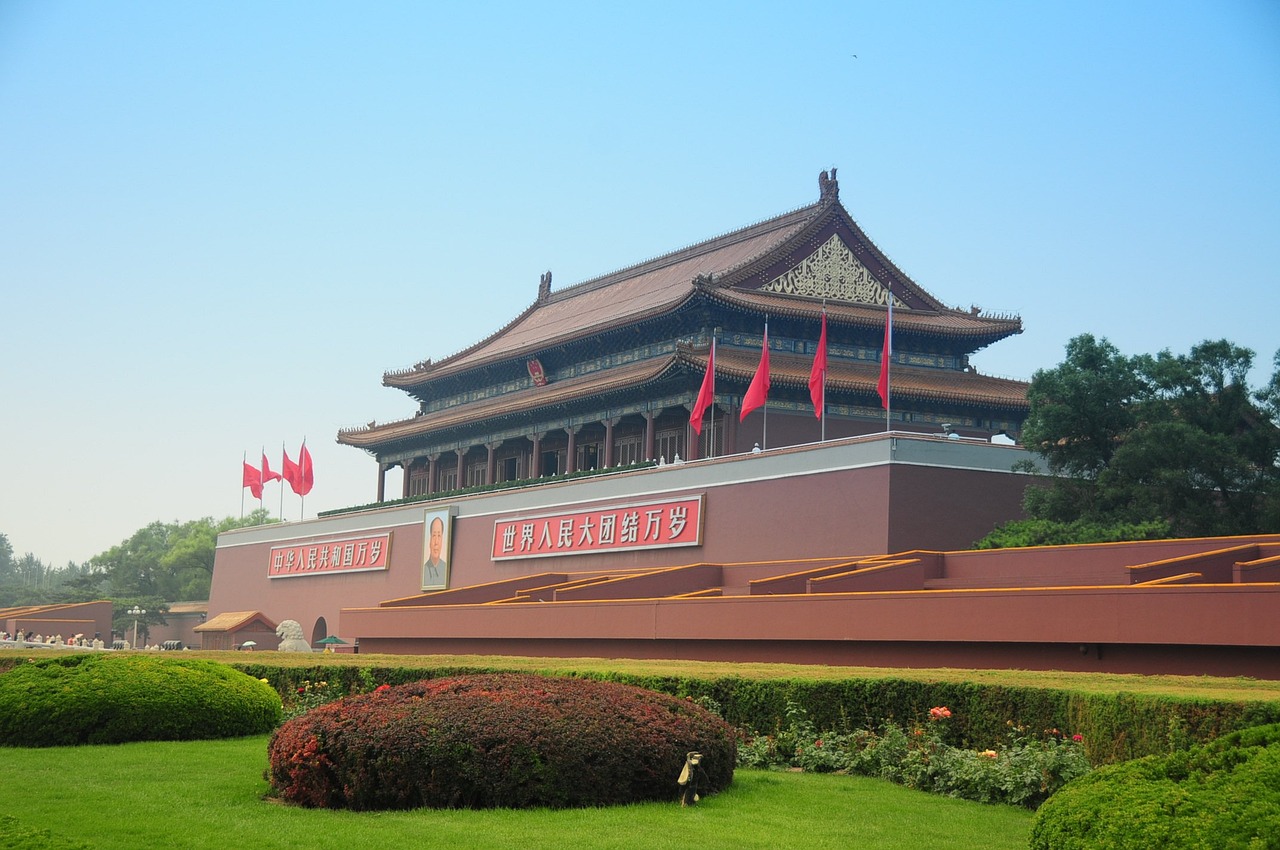
Impact on the Cultural Revolution
The Cultural Revolution, initiated by Mao Zedong in 1966, was a radical sociopolitical movement that sought to reinforce communist ideology by purging remnants of capitalist and traditional elements from Chinese society. This decade-long campaign was not merely a political maneuver; it was a profound upheaval that transformed the very fabric of Chinese life. Imagine a society where schools were shut down, intellectuals were persecuted, and cultural relics were destroyed—all in the name of ideological purity. The Cultural Revolution was Mao's answer to his fears of a capitalist resurgence, and it profoundly reshaped China, both during and after the movement.
Mao believed that a continuous revolution was essential to maintaining the momentum of the communist movement. He rallied the youth of China, mobilizing the Red Guards to attack the 'Four Olds': old customs, old culture, old habits, and old ideas. This mobilization resulted in widespread chaos, as fervent young revolutionaries often turned against their teachers, parents, and anyone perceived as bourgeois. The impact of this campaign was devastating. Historical artifacts were destroyed, libraries were looted, and countless individuals were subjected to public humiliation, imprisonment, or worse.
The Cultural Revolution also had a significant impact on education. Schools were closed for years, and the focus shifted from academic learning to political indoctrination. Students were encouraged to embrace revolutionary zeal over scholarly achievement. This shift created a generation of individuals who were less educated in traditional subjects but deeply ingrained with Maoist ideology. The long-term effects of this educational disruption are still felt today, as many Chinese citizens grapple with the legacy of a disrupted educational system.
Despite its destructive nature, the Cultural Revolution also had unintended consequences that shaped modern China. The chaos it unleashed led to a reevaluation of Mao's policies and a gradual shift towards reform and opening up in the late 1970s. The scars of this period remain, as it serves as a cautionary tale about the dangers of unchecked ideology and mass mobilization. In contemporary discussions about Mao's legacy, the Cultural Revolution is often highlighted as a period of extreme turmoil, reminding us of the complexities of China's journey towards modernization.
In summary, the Cultural Revolution was a pivotal moment in Chinese history that highlighted the extremes of Mao's philosophy. While it aimed to solidify communist ideology, it instead led to widespread suffering and a reassessment of Mao's role in Chinese society. The echoes of this tumultuous period still resonate today, influencing how modern China navigates its past while forging its future.
- What was the main goal of the Cultural Revolution? The primary aim was to reinforce communist ideology by eliminating capitalist and traditional elements from society.
- How did the Cultural Revolution affect education in China? Education was heavily disrupted, with schools closing and a shift towards political indoctrination rather than academic learning.
- What were the consequences of the Cultural Revolution? The movement led to widespread chaos, persecution of intellectuals, destruction of cultural artifacts, and long-term impacts on Chinese society and education.
- How is the Cultural Revolution viewed in modern China? It is often seen as a cautionary tale about the dangers of extreme ideology and mass mobilization, prompting a reevaluation of Mao's legacy.
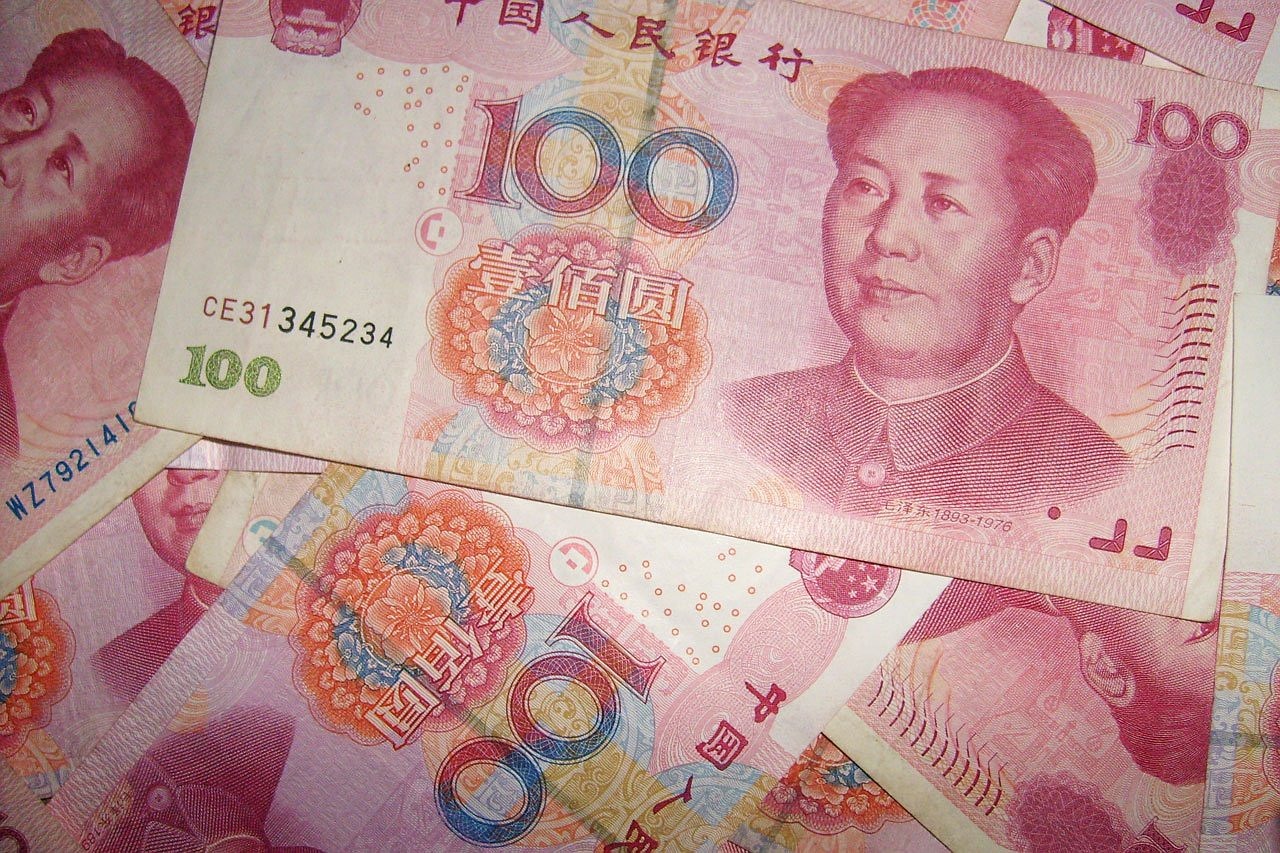
Legacy of Class Struggle
The legacy of class struggle in Mao Zedong's China is a complex tapestry woven with threads of political purges, societal upheaval, and a relentless pursuit of ideological purity. Mao's emphasis on class struggle was not merely a theoretical framework; it was a driving force behind many of his policies and campaigns. The idea was simple yet profound: to maintain the revolutionary spirit, the Communist Party had to continuously engage in class struggle to root out bourgeois elements that could threaten the socialist state. This belief led to a series of events that would leave a lasting mark on Chinese society.
One of the most significant manifestations of this ideology was the Cultural Revolution, which aimed to eliminate perceived enemies of the state and reinforce Maoist thought. During this tumultuous period, millions were persecuted, including intellectuals, party officials, and ordinary citizens who were accused of harboring counter-revolutionary sentiments. The atmosphere of suspicion and fear fostered a culture where denunciations became commonplace, and loyalty to Mao was paramount. Families were torn apart as individuals faced the dilemma of either supporting the party line or risking their safety and that of their loved ones.
The repercussions of this class struggle ideology extended beyond political purges. It instilled a sense of distrust among citizens, leading to a society where people were often pitted against one another in a quest for ideological conformity. The psychological scars of this period are still evident today, as many Chinese grapple with the legacy of a time when political allegiance could dictate one's fate. The cultural ethos of suspicion and the need for loyalty continue to influence social relationships, often manifesting in a reluctance to express dissenting opinions or challenge authority.
Moreover, the legacy of class struggle has permeated various aspects of Chinese life, shaping not only political discourse but also educational practices and cultural norms. Schools and universities became hotbeds for ideological training, where students were taught to prioritize collective over individual interests. This focus on the collective has left a lasting imprint on the Chinese psyche, influencing how generations view their roles within society and their relationship with the state.
While the Communist Party has since shifted its focus towards economic development and globalization, the echoes of Mao's class struggle remain. The party still invokes this legacy to justify its authority and maintain control over the populace. As China continues to evolve, the challenge lies in reconciling this tumultuous past with the aspirations of a modern society seeking to carve its path on the global stage.
- What was the main goal of Mao's class struggle?
The primary goal was to eliminate bourgeois elements and maintain the revolutionary spirit within the Communist Party and society. - How did the Cultural Revolution relate to class struggle?
The Cultural Revolution was a direct outcome of Mao's belief in continuous class struggle, leading to widespread persecution and societal upheaval. - What are the long-term effects of class struggle on Chinese society?
It has fostered a culture of suspicion, shaped educational practices, and influenced social relationships, leaving psychological scars that are still evident today. - Is the legacy of class struggle still relevant in modern China?
Yes, the Communist Party continues to draw on this legacy to justify its governance and maintain control, even as the nation adapts to global changes.

Self-Reliance and Economic Policies
Mao Zedong's principle of self-reliance was not just a catchy slogan; it was a fundamental tenet that shaped China's economic policies during his leadership. This idea stemmed from a deep-seated belief that China, having suffered from foreign domination and exploitation, needed to forge its own path towards development without relying on external powers. In practical terms, this philosophy manifested in a series of ambitious economic initiatives aimed at transforming the agrarian society into an industrial powerhouse.
One of the most significant policies that emerged from Mao's self-reliance ideology was the push for agricultural collectivization. This involved consolidating individual landholdings into large, collective farms known as People's Communes. The idea was that pooling resources would lead to increased efficiency and productivity. However, the reality was far more complex. While some communes did see initial gains in output, the overall impact was disastrous, leading to widespread famine and suffering during the Great Leap Forward. This tragic event serves as a stark reminder of the dangers of overly ambitious policies disconnected from the realities of agricultural practices.
Furthermore, Mao's emphasis on self-reliance also extended to industrialization. The government launched initiatives to develop local industries, often prioritizing heavy industry over consumer goods. The belief was that by producing everything from steel to machinery domestically, China could become independent and strong. However, this led to a series of misallocations and inefficiencies, as many factories were built without proper planning or consideration of market needs. The result was a distorted economy that struggled to meet the basic needs of its population.
To illustrate the impact of these policies, consider the following table that summarizes key aspects of Mao's economic strategies:
| Policy | Objective | Outcome |
|---|---|---|
| Agricultural Collectivization | Increase agricultural productivity through collective farming | Initial gains followed by catastrophic famine |
| Heavy Industry Focus | Develop domestic industries to reduce foreign dependency | Misallocation of resources and inefficiencies |
| Self-Reliant Education | Promote education that aligns with revolutionary ideals | Creation of a politically aware populace |
Despite the challenges and failures associated with these policies, the principle of self-reliance left a lasting legacy. It instilled a sense of pride and independence among the Chinese people, fostering a belief that they could overcome obstacles through their own efforts. This idea continues to influence China's approach to economic development today, as the nation seeks to balance global engagement with a strong emphasis on domestic capabilities.
In conclusion, Mao Zedong's self-reliance and economic policies were ambitious and transformative, yet fraught with challenges. They reflected a profound desire for independence and self-sufficiency that resonated deeply with the Chinese populace. While the outcomes were often mixed, the ideological underpinnings of these policies have left a significant mark on China's economic landscape, shaping its evolution in the decades that followed.
- What was the main goal of Mao's self-reliance policy? The main goal was to make China self-sufficient and reduce dependency on foreign powers.
- How did agricultural collectivization affect the Chinese economy? It aimed to increase productivity but led to significant famine due to mismanagement and poor planning.
- What legacy did Mao's economic policies leave? They instilled a sense of independence and pride among the Chinese people, influencing future economic strategies.
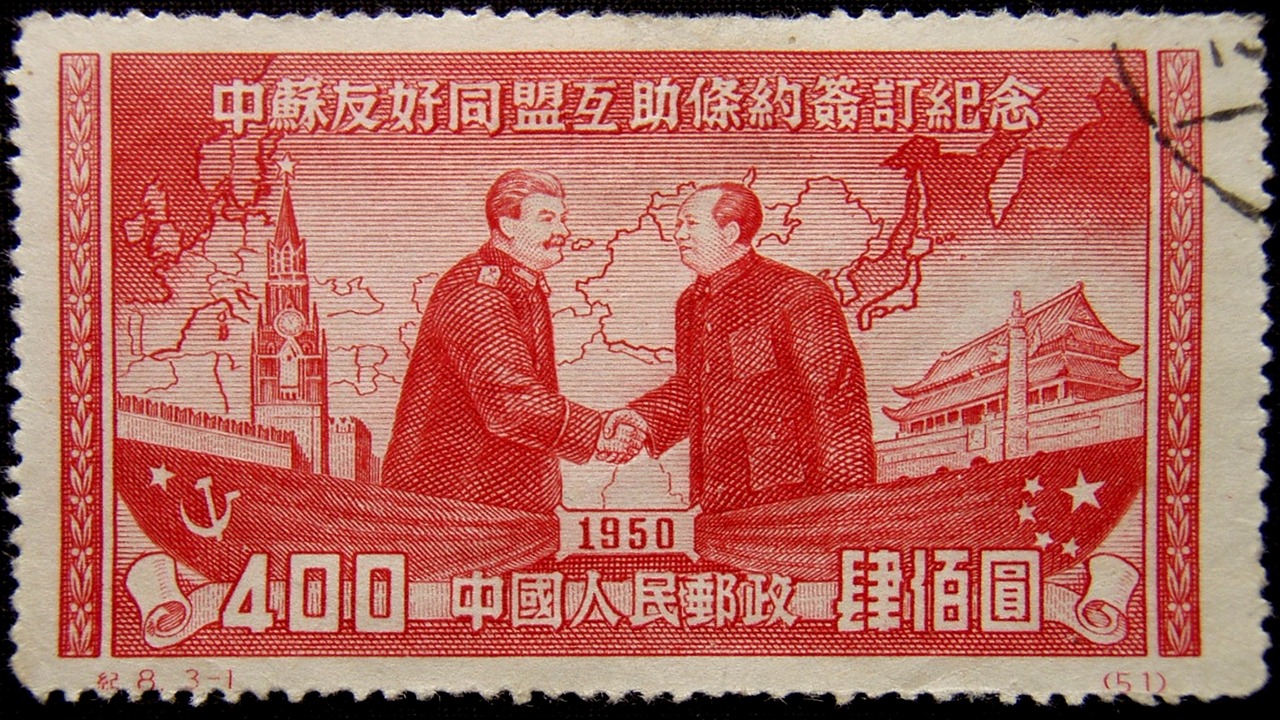
Mao's Influence on Modern Chinese Politics
Mao Zedong's philosophy, often referred to as Maoism, continues to cast a long shadow over the political landscape of contemporary China. Even decades after his death, the Communist Party of China (CPC) finds itself navigating a complex terrain where Mao's ideologies serve both as a guiding principle and a historical reference point. The party's ability to maintain its grip on power is, in many ways, intertwined with its interpretation and application of Maoist principles, particularly in the face of rapid globalization and economic reform.
One of the most significant aspects of Mao's influence is evident in the way the CPC has managed to legitimize its governance through the lens of Maoist thought. The party often invokes Mao's revolutionary legacy to reinforce its authority, especially during times of social unrest or political challenge. This is not merely a nostalgic nod to history; rather, it serves as a strategic tool to remind citizens of the sacrifices made during the revolutionary period and the supposed threats to national unity that can arise from dissent. The party's narrative often emphasizes the need to uphold **socialist values** and resist the encroachment of Western capitalism, framing these ideas as a continuation of Mao's vision for China.
Moreover, Mao's philosophy has significantly shaped the CPC's approach to governance and policy-making. The party has adopted a dual strategy where it seeks to maintain **ideological purity** while also adapting to the realities of a rapidly changing global economy. This balancing act is crucial for the CPC as it faces increasing pressure to provide economic growth and stability while also adhering to its foundational principles. In this context, Mao's emphasis on continuous revolution and class struggle is often reinterpreted to justify current policies aimed at addressing inequality and ensuring social harmony.
Another dimension of Mao's influence is seen in the development of a unique Chinese national identity that intricately weaves together nationalism and communist ideology. The CPC has effectively utilized Mao's legacy to foster a sense of pride and unity among the Chinese populace. By promoting the idea that China has risen from the ashes of colonialism and imperialist oppression, the party has cultivated a narrative that resonates deeply with citizens. This narrative not only honors Mao's contributions but also serves as a rallying cry for national rejuvenation, positioning the CPC as the rightful guardian of China's sovereignty and dignity.
In recent years, the CPC has also faced the challenge of reconciling Mao's revolutionary ideals with the demands of a modern, market-oriented economy. While the party has embraced economic reforms that have propelled China into the global economic arena, it simultaneously seeks to uphold the **socialist foundations** that Mao championed. This duality is evident in various policies aimed at promoting social welfare, environmental sustainability, and economic equality, which are often framed as extensions of Mao's commitment to the people. The party's ability to navigate these complexities has been critical in maintaining its legitimacy and support among the populace.
In conclusion, Mao Zedong's philosophy remains a pivotal element in shaping modern Chinese politics. His ideas continue to influence the CPC's governance strategies, national identity, and socio-economic policies, creating a unique blend of revolutionary fervor and pragmatic governance. As China continues to evolve on the global stage, the legacy of Mao will undoubtedly remain a crucial reference point for the CPC, guiding its decisions and shaping its future.
- How does Mao's philosophy influence current Chinese policies? Mao's philosophy influences current policies by providing a framework for governance that emphasizes ideological purity while adapting to economic changes.
- What role does nationalism play in modern Chinese politics? Nationalism, intertwined with Maoist ideology, fosters a sense of unity and pride among citizens, reinforcing the CPC's legitimacy.
- Are Mao's principles still relevant today? Yes, Mao's principles remain relevant as the CPC continues to draw on them to justify its policies and maintain control over the political landscape.

Party Ideology and Governance
Mao Zedong's philosophy has left an indelible mark on the governance of the People's Republic of China, and its echoes can still be felt in the Communist Party's policies and practices today. The Party has adeptly utilized Maoist principles to assert its legitimacy and maintain control over the nation, creating a unique blend of traditional communist ideology and contemporary governance strategies. This approach allows the Party to navigate the complexities of modern society while staying true to its revolutionary roots.
One of the core tenets of Mao's thought is the idea of perpetual revolution. This principle is not just a relic of the past; it serves as a guiding light for the Party as it seeks to adapt to new challenges. The Communist Party of China (CPC) often invokes Mao's legacy to reinforce its authority and justify its actions, especially in times of social unrest or economic instability. By framing its governance as a continuation of Mao's revolutionary spirit, the Party aims to cultivate a sense of unity and purpose among the populace.
Moreover, the CPC has employed Maoist rhetoric to connect with the younger generations, who may feel disconnected from the Party's historical narratives. Through various campaigns and educational programs, the Party emphasizes Mao's contributions to the nation, portraying him as a symbol of strength and resilience. This strategy not only seeks to legitimize the Party's rule but also to foster a collective identity that resonates with the ideals of self-reliance and national pride.
However, the balancing act between adhering to Maoist principles and embracing economic reforms is not without its challenges. As China continues to integrate into the global economy, the CPC faces the daunting task of maintaining ideological purity while also pursuing policies that encourage economic growth and modernization. This has led to a complex relationship where elements of Mao's thought are selectively highlighted or downplayed, depending on the political climate and societal needs.
In summary, the governance of modern China is deeply intertwined with Mao Zedong's philosophy. The Communist Party of China continues to draw on Maoist principles to legitimize its authority and navigate the intricate dynamics of contemporary society. This ongoing influence is a testament to the lasting impact of Mao's ideology, shaping not only the political landscape but also the very identity of the nation.
- What is the significance of Mao Zedong's philosophy in modern China?
Mao's philosophy serves as a foundation for the Communist Party's legitimacy and governance, influencing policies and national identity. - How does the Communist Party balance Maoist principles with economic reforms?
The Party selectively emphasizes Maoist ideals while pursuing policies that foster economic growth, adapting to global changes. - What role does education play in perpetuating Mao's ideology?
Educational reforms initiated during Mao's era instilled revolutionary ideals in generations, shaping collective identity and societal norms.

Nationalism and Identity
Mao Zedong's philosophy has played a crucial role in shaping the national identity of modern China. At a time when the nation was grappling with foreign invasions and internal strife, Mao's emphasis on nationalism intertwined with communist ideology provided a framework for unifying the populace. This fusion of ideas not only solidified the Communist Party's grip on power but also fostered a sense of pride among the Chinese people. The narrative that emerged portrayed China as a resilient nation, rising from the ashes of colonialism and oppression, and this narrative is still prevalent today.
One of the key aspects of Mao's approach to nationalism was the idea of self-determination. He believed that the Chinese people should carve their own path, free from foreign influence. This ideology resonated deeply with a population that had endured centuries of domination by foreign powers. As a result, Mao's policies promoted a collective identity that emphasized unity, strength, and a shared destiny. The concept of the "Chinese Dream," which has been popularized in contemporary discourse, can trace its roots back to Mao's vision of a strong and independent China.
Moreover, Mao's philosophy instilled a sense of collectivism that permeated various aspects of Chinese society. This collectivist mindset was not only a political tool but also a cultural one. It encouraged communities to work together towards common goals, fostering a spirit of cooperation and mutual support. The emphasis on the collective over the individual has had lasting implications for social relationships in China, where community ties often take precedence over personal ambitions.
The legacy of Mao's nationalist ideology can also be seen in how the Communist Party continues to frame its policies. The party regularly invokes historical narratives of struggle and triumph to legitimize its governance. For instance, the celebration of events such as the Long March and the founding of the People's Republic of China serves to remind citizens of their shared history and the sacrifices made for national unity. This historical consciousness is a powerful tool in maintaining social cohesion and reinforcing the party's authority.
However, the relationship between nationalism and identity in modern China is complex. While Mao's ideology laid the groundwork for a unified national identity, contemporary challenges such as globalization and regional disparities have prompted new discussions about what it means to be Chinese. As the country continues to evolve, the balance between traditional Maoist values and modern aspirations creates a dynamic landscape where nationalism is both a unifying force and a topic of debate.
In conclusion, Mao Zedong's philosophy has indelibly shaped the national identity of China. His ideas of self-determination, collectivism, and historical consciousness have fostered a strong sense of nationalism that persists in contemporary society. As China navigates the challenges of the 21st century, the legacy of Mao's thought will undoubtedly continue to influence the nation's identity and its place in the world.
- How did Mao Zedong's philosophy influence Chinese nationalism?
Mao's philosophy promoted self-determination and collectivism, shaping a strong sense of national pride and unity among the Chinese people. - What are the modern implications of Mao's nationalist ideology?
While Mao's ideas fostered a unified national identity, contemporary challenges have led to discussions about the balance between traditional values and modern aspirations. - How does the Communist Party use Mao's legacy today?
The Communist Party invokes historical narratives from Mao's era to legitimize its governance and reinforce social cohesion among citizens.
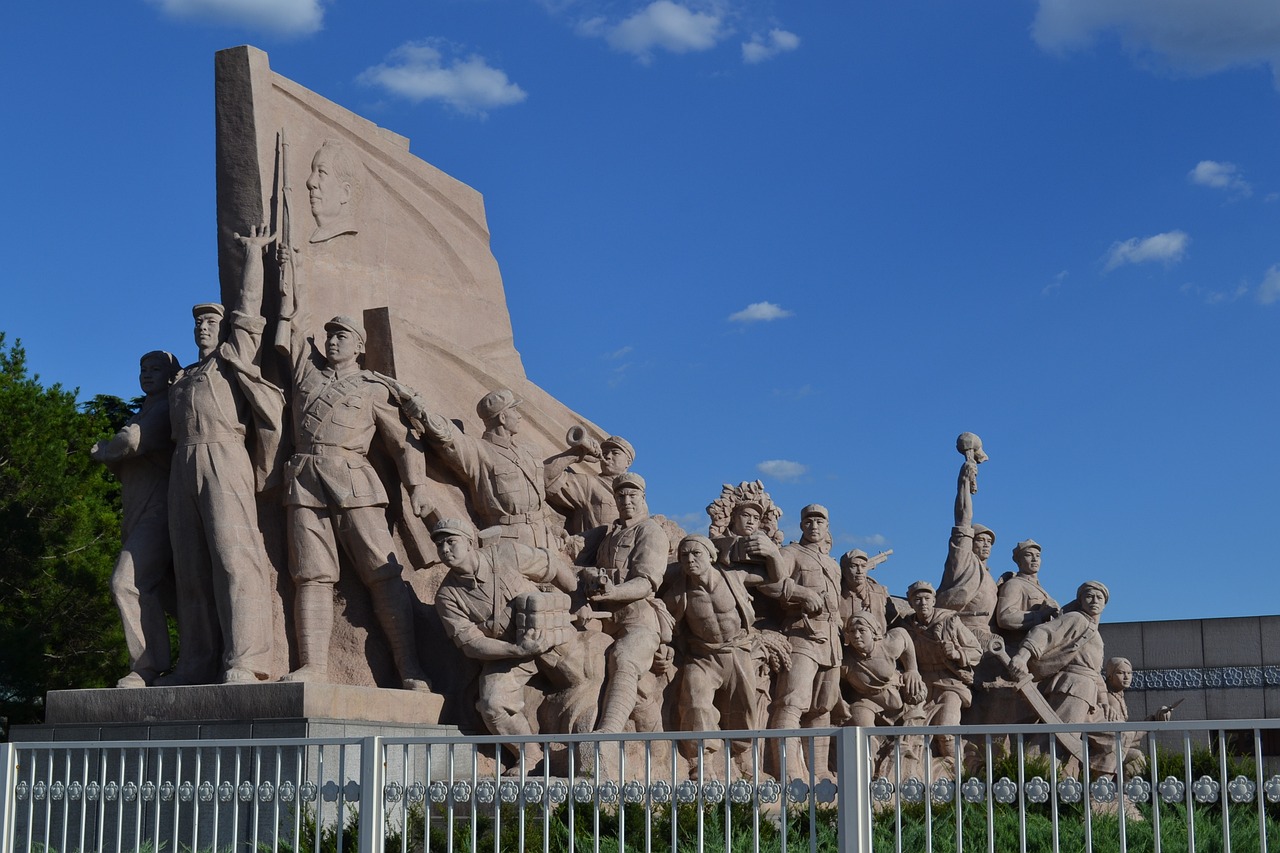
Societal Impact of Mao's Philosophy
Mao Zedong's philosophy has left an indelible mark on Chinese society, influencing everything from cultural norms to educational practices and social relationships. The ripple effects of Mao's ideology can be observed in various aspects of daily life, as well as in the broader societal framework. It's fascinating to see how a single figure's thoughts can shape an entire nation, isn't it? The intertwining of Mao's ideas with Chinese culture has created a unique tapestry of beliefs and practices that continue to evolve.
One of the most significant societal shifts during Mao's era was in the realm of education. The educational reforms he instituted were not merely about imparting knowledge; they were designed to instill revolutionary ideals in the youth. Schools became breeding grounds for loyalty to the Communist Party, where students were taught to value collective identity over individual aspirations. This focus on ideology over traditional academics led to the emergence of a generation that was deeply ingrained with Maoist principles. The impact of these reforms is still evident today, as many Chinese citizens carry forward a sense of collective identity shaped by their educational experiences during Mao's rule.
Moreover, Mao's policies also had a profound impact on gender roles within society. His push for gender equality was revolutionary for its time, encouraging women to step out of traditional roles and participate actively in the workforce and political life. This was a significant shift from centuries of patriarchal norms that had dominated Chinese society. Women were encouraged to engage in various sectors, from agriculture to industry, and this shift fostered a sense of empowerment among women that was previously unheard of. However, the long-term effects of this transformation are still debated today. While many women gained opportunities, the question remains: has true equality been achieved in modern China?
To further illustrate the societal changes brought about by Mao's philosophy, consider the following table that summarizes key impacts:
| Aspect | Impact |
|---|---|
| Education | Emphasis on revolutionary ideals, collective identity over individualism |
| Gender Roles | Promotion of gender equality, increased participation of women in various sectors |
| Cultural Norms | Shift towards collectivism, reverence for Communist ideals |
In summary, the societal impact of Mao's philosophy is multifaceted, affecting education, gender roles, and cultural norms in profound ways. As we reflect on these changes, it's essential to recognize that while Mao's ideas have shaped modern China, they have also sparked ongoing discussions about identity, equality, and the future trajectory of Chinese society. The legacy of Mao Zedong is a complex one, filled with both advancements and challenges that continue to resonate in contemporary life.
- What were the main educational reforms during Mao's era?
Educational reforms focused on instilling revolutionary ideals and promoting collective identity over individualism. - How did Mao's philosophy impact gender roles?
Mao promoted gender equality, leading to increased participation of women in various sectors, though true equality remains a topic of debate. - What is the legacy of Mao's philosophy in modern China?
Mao's philosophy has shaped cultural norms, educational practices, and social relationships, creating a unique societal framework that still influences China today.
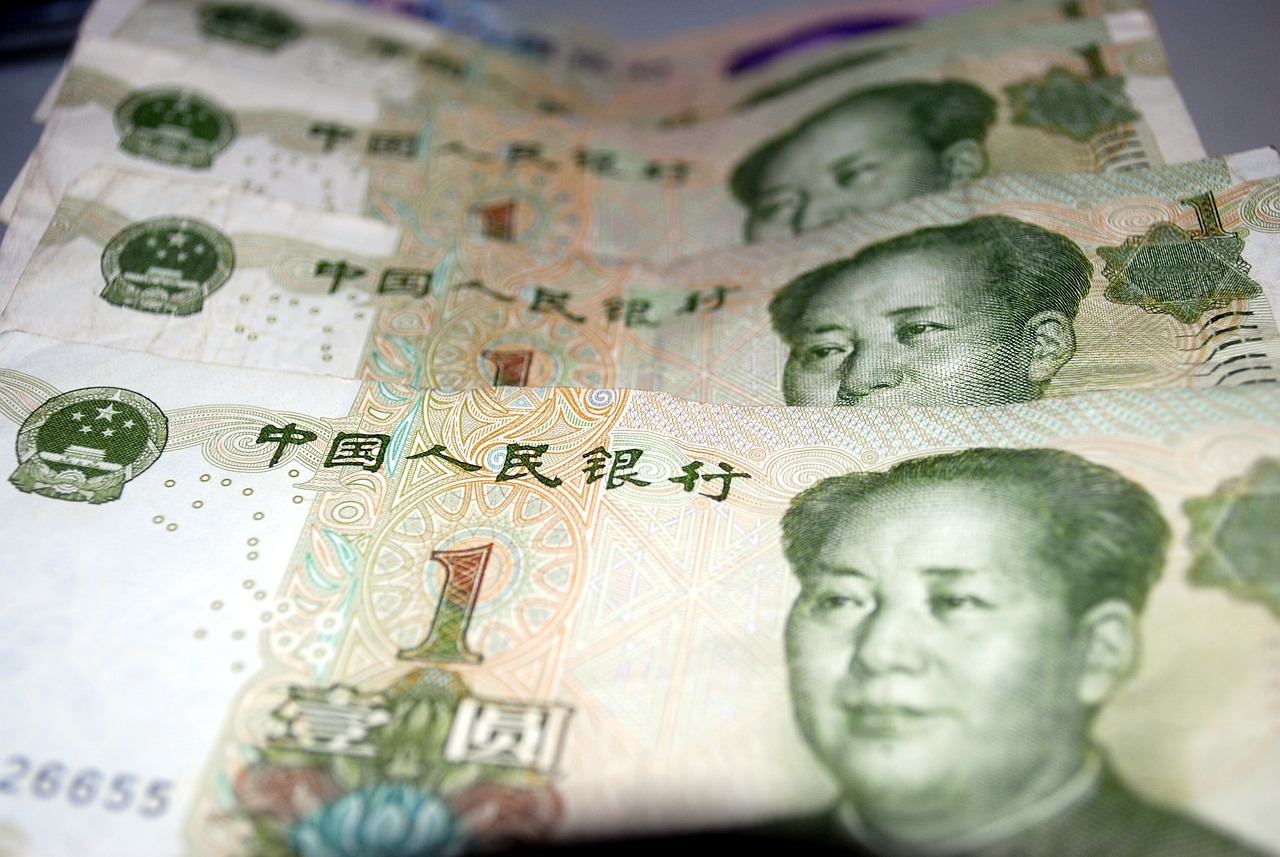
Cultural Shifts and Education
Mao Zedong's rule was not just about political upheaval; it was a transformative era that redefined Chinese culture and education. The educational reforms initiated during this time were deeply intertwined with revolutionary ideals, aiming to cultivate a new generation of citizens who were not only loyal to the Communist Party but also committed to the principles of socialism. Schools became breeding grounds for revolutionary fervor, where traditional teachings were often replaced with lessons on class struggle and the importance of the proletariat. This shift was monumental, as it aimed to instill a sense of collective identity among the youth.
One of the most significant changes was the promotion of a curriculum that emphasized Marxist-Leninist thought. Textbooks were rewritten to reflect the party's ideology, and students were encouraged to question traditional values that were seen as remnants of a feudal past. This cultural shift was not just limited to the classroom; it permeated every aspect of life. For instance, the arts were heavily regulated, with literature and music being used as tools to propagate the Communist message. The famous slogan "Learn from the masses" epitomized this approach, suggesting that the wisdom of the people was superior to that of established intellectuals.
However, the impact of these educational reforms extended beyond mere ideology. The Cultural Revolution, which began in 1966, sought to further radicalize education by purging schools of "bourgeois" elements. This led to the closure of universities and the disruption of academic life, forcing students to engage in manual labor while denouncing their teachers and elders. The consequences were dire, as a generation lost out on essential educational opportunities. In many ways, the Cultural Revolution was a double-edged sword; while it aimed to create an egalitarian society, it also resulted in a significant setback in China's intellectual and cultural development.
Despite these upheavals, the long-term effects of Mao's educational policies are still evident today. Many of the values instilled during this period, such as a focus on collective well-being over individualism, continue to shape contemporary Chinese society. The emphasis on education has remained strong, with the government investing heavily in education since the 1980s. Today, China boasts one of the largest education systems in the world, with millions of students pursuing higher education. Yet, the legacy of Mao's era still lingers, as the government balances the need for innovation with the desire to maintain ideological control.
In summary, the cultural shifts and educational reforms during Mao Zedong's time were crucial in molding modern Chinese society. They fostered a collective identity rooted in socialist principles while simultaneously imposing strict ideological constraints that would have lasting implications for generations to come. The question remains: how will these historical influences continue to shape the future of education and culture in China?
- What was the main goal of Mao's educational reforms?
The primary aim was to create a new generation of citizens who were loyal to the Communist Party and committed to socialist values, replacing traditional teachings with Marxist-Leninist ideology.
- How did the Cultural Revolution affect education?
The Cultural Revolution led to the closure of schools and universities, disrupting academic life and forcing students into manual labor while denouncing traditional educators.
- What are the long-term effects of Mao's educational policies?
While many of the ideological constraints have loosened, the emphasis on collective identity and the value of education remain strong in contemporary Chinese society.

Gender Roles and Women's Liberation
Mao Zedong's policies during the Communist revolution significantly transformed the landscape of gender roles in China. Before Mao, traditional Confucian values dominated societal norms, often relegating women to subordinate roles within the family and society. However, Mao's ideology sought to dismantle these patriarchal structures, promoting a vision of gender equality that resonated with many. His famous assertion that "women hold up half the sky" became a rallying cry for women's liberation, emphasizing their vital role in both the workforce and society.
Under Mao's leadership, the government implemented various policies aimed at improving the status of women. These included legal reforms that granted women equal rights in marriage, education, and employment. For instance, the Marriage Law of 1950 abolished arranged marriages and allowed women to initiate divorce, which was revolutionary for the time. This shift not only empowered women but also aimed to dismantle the oppressive practices that had long been entrenched in Chinese society.
However, while Mao's policies made significant strides in promoting gender equality, the actual implementation and outcomes were complex and varied. In many cases, women were encouraged to join the workforce and participate in agricultural and industrial production, which led to a dramatic increase in female labor participation. Yet, this was often accompanied by the expectation that women would continue to fulfill traditional domestic roles. The dual burden of working outside the home while managing household responsibilities created a challenging dynamic for many women.
Moreover, the Cultural Revolution further complicated the landscape of gender roles. As the movement sought to eradicate the "Four Olds"—old customs, old culture, old habits, and old ideas—women were both empowered and exploited. The revolutionary fervor led to a temporary loosening of traditional gender norms, allowing women to take on leadership roles within the Communist Party and engage in political activism. However, this period also saw widespread violence and chaos, which often disproportionately affected women, particularly those who were seen as counter-revolutionary or bourgeois.
In the aftermath of Mao's death in 1976, the landscape of gender roles continued to evolve. While the foundational changes initiated during Mao's rule laid the groundwork for future advancements in women's rights, the post-Mao era witnessed a resurgence of traditional values and expectations. Today, women in China navigate a complex interplay of modernity and tradition, striving for equality in a rapidly changing society.
To summarize, Mao Zedong's impact on gender roles and women's liberation in China was significant and multifaceted. His policies initiated a shift towards greater equality, enabling women to step into roles that were previously inaccessible. However, the journey toward true gender equality remains ongoing, as societal expectations and traditional norms continue to influence women's lives in contemporary China.
- What were the main policies introduced by Mao to promote women's rights? Mao introduced the Marriage Law of 1950, which abolished arranged marriages, and encouraged women to work in various sectors, promoting gender equality.
- How did the Cultural Revolution affect women's roles? During the Cultural Revolution, women were encouraged to take on leadership roles and engage in political activism, but many faced violence and societal upheaval.
- Are women's rights fully realized in modern China? While significant progress has been made, women in China still face challenges related to traditional gender roles and societal expectations.
Frequently Asked Questions
- What were the core principles of Mao Zedong's philosophy?
Mao Zedong's philosophy is primarily characterized by principles such as continuous revolution, class struggle, and self-reliance. These concepts were foundational in shaping the strategies and policies of the Chinese Communist Party, influencing China's political and social landscape.
- How did Mao's philosophy influence the Cultural Revolution?
The Cultural Revolution was a direct manifestation of Mao's idea of continuous revolution. Mao believed that to prevent the resurgence of bourgeois elements, class struggle needed to be an ongoing process. This led to a decade-long campaign aimed at reinforcing communist ideology and purging perceived threats to the party's authority.
- What impact did Mao's policies have on modern Chinese politics?
Mao's philosophy continues to resonate in contemporary Chinese politics. The Communist Party of China often invokes Maoist principles to legitimize its governance and navigate the challenges of maintaining ideological purity while adapting to global economic changes.
- How did Mao's ideology affect gender roles in China?
Mao's policies promoted gender equality, significantly altering women's roles in society. While these changes opened up new opportunities for women, the long-term effects and the extent of true equality remain subjects of debate in modern China.
- What role did education play in promoting Mao's ideology?
Education during Mao's rule was heavily influenced by revolutionary ideals. The reforms aimed to instill a sense of collective identity among citizens, shaping cultural norms and societal values that continue to impact Chinese society today.
- How does Mao's philosophy contribute to Chinese nationalism?
Mao's ideology has intertwined nationalism with communist principles, creating a unique national identity that the Communist Party still promotes. This blend of nationalism and ideology remains a fundamental part of the party's narrative and governance strategy.



